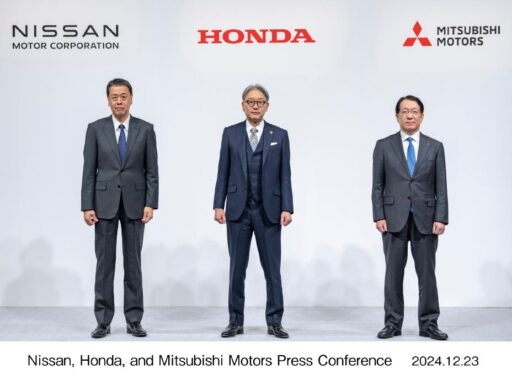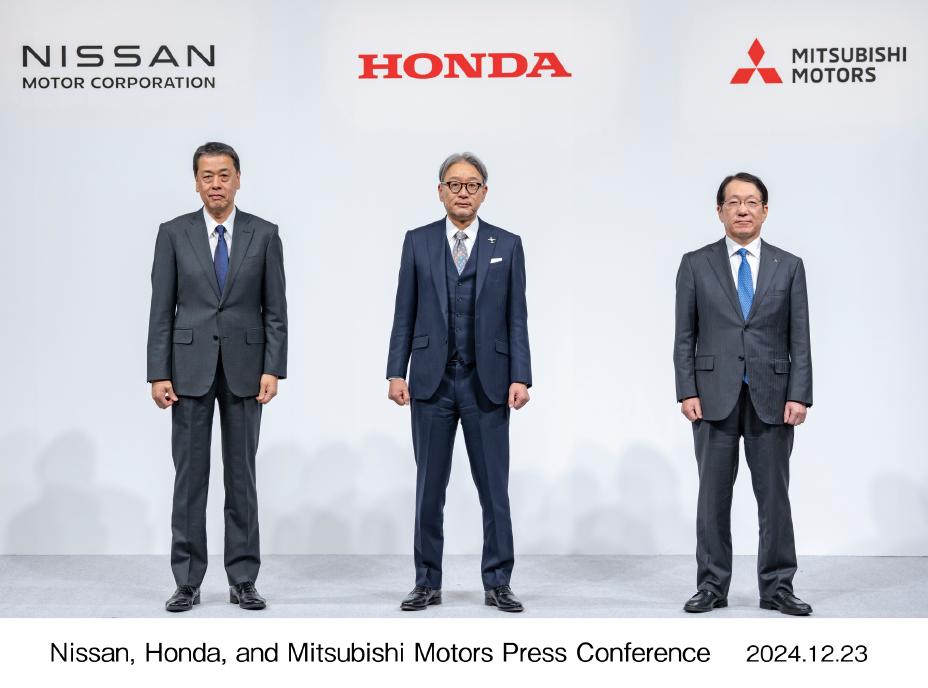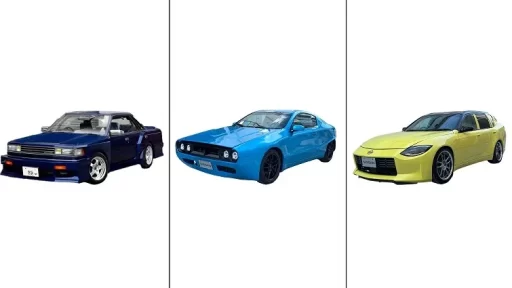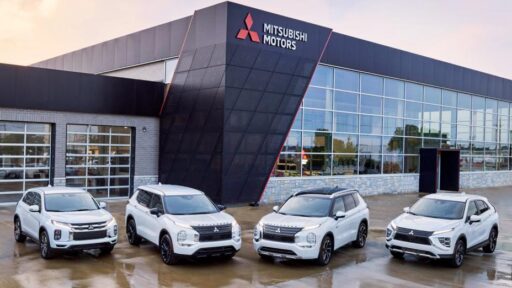Nissan Motor Co., Ltd. and Honda Motor Co., Ltd. have signed a memorandum of understanding (MOU) to explore a potential business integration via a joint holding company. This collaboration aims to accelerate efforts in achieving carbon neutrality, zero-traffic fatalities, and advancing vehicle intelligence and electrification.
Discussions between the two automakers began with an MOU in March 2024 and intensified in August, focusing on joint research in next-generation software-defined vehicle (SDV) platforms.
READ MORE: Hyundai to Provide Free Tesla-Compatible Adapters for EV Owners in 2025
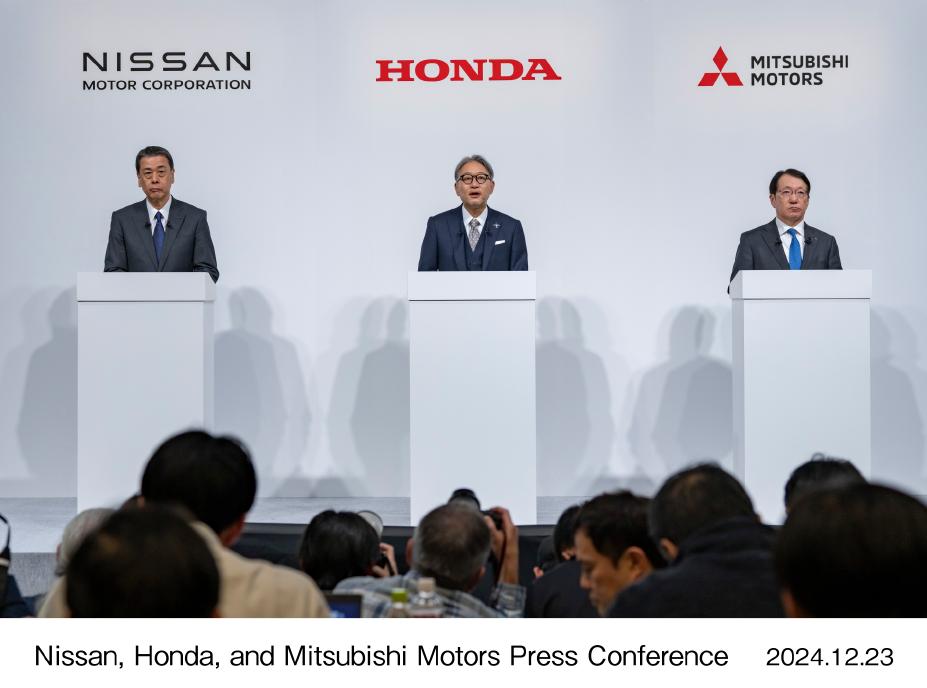
This latest agreement highlights the companies’ intent to strengthen global competitiveness by integrating resources, creating synergies, and responding to rapid technological advancements.
Key Objectives of the Business Integration:
- Platform Standardization: Standardizing vehicle platforms to enhance product strength, reduce costs, and increase operational efficiency, covering a range of vehicles including EVs, hybrids, and ICE models.
- Enhanced R&D Collaboration: Unified research across all functions to boost technological expertise and reduce development costs.
- Optimized Manufacturing: Improved plant utilization and shared production lines to lower fixed costs.
- Streamlined Supply Chains: Integrated purchasing to improve efficiency and competitiveness.
- Cost Synergies: Merging back-office operations to achieve significant cost savings.
- Sales Finance Integration: Expanding financial services for mobility solutions across vehicle lifecycles.
- Talent Development: Pooling expertise to attract top talent and promote skill-sharing.
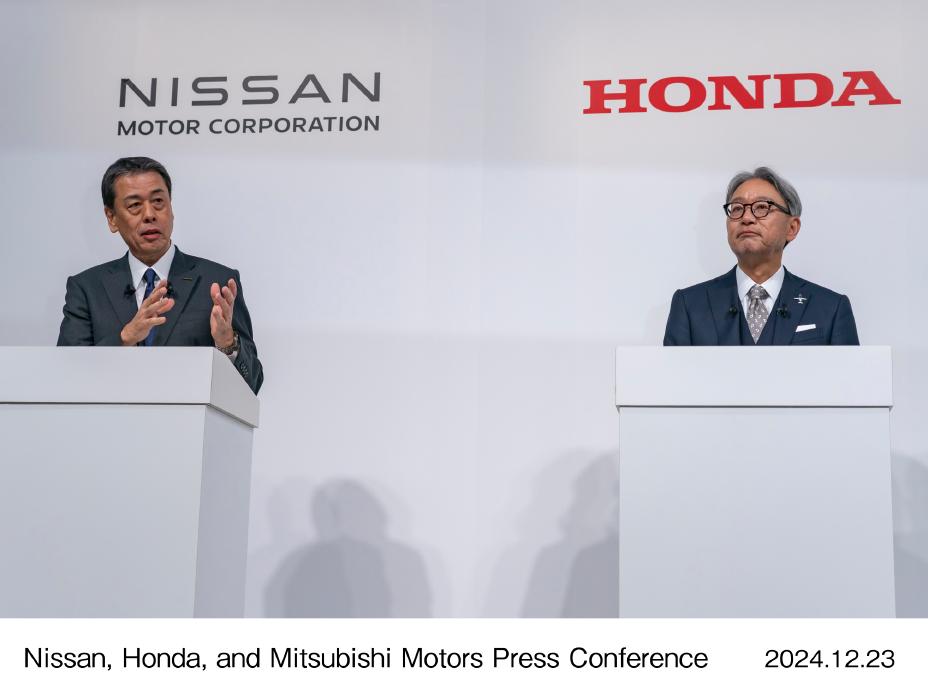
The joint holding company is projected to generate over ¥30 trillion in revenue and ¥3 trillion in operating profit, enhancing both companies’ ability to meet diverse global customer needs. The organizational framework, share transfer ratios, and operational details will be finalized by mid-2025, with the new entity slated for an August 2026 Tokyo Stock Exchange listing.
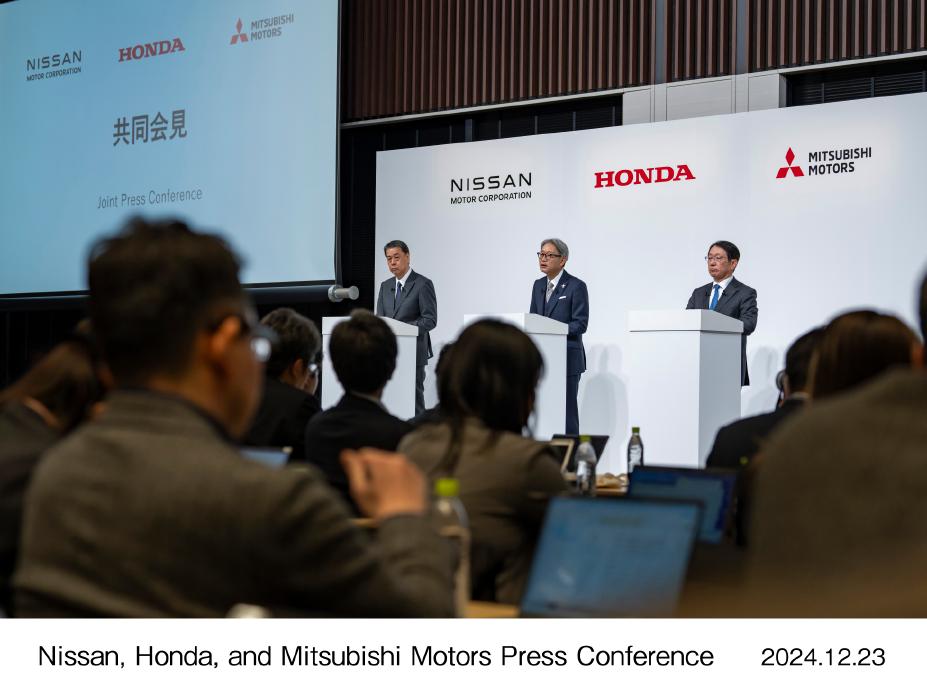
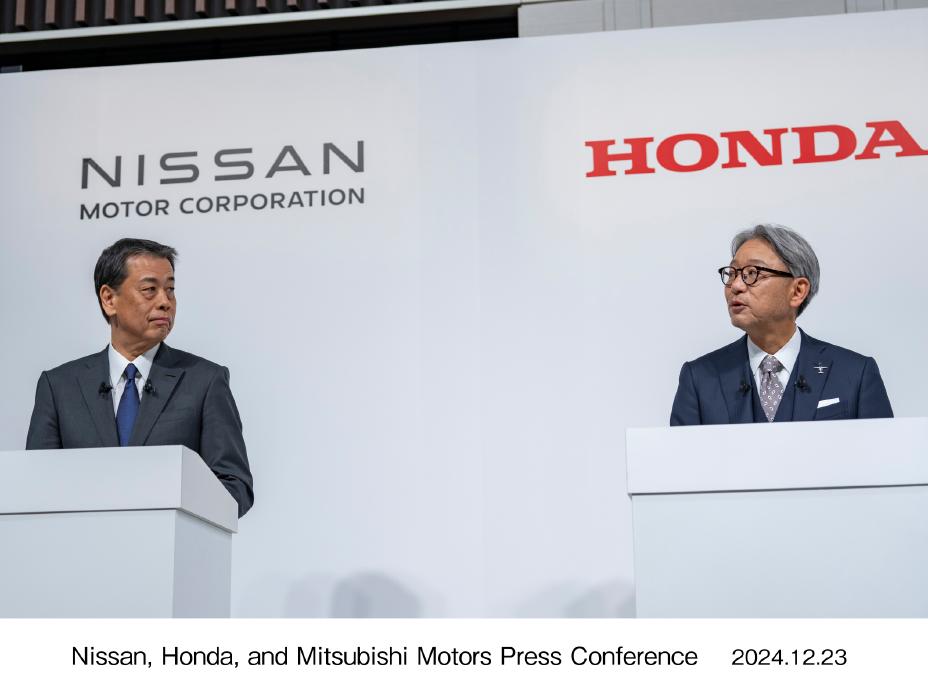
Nissan CEO Makoto Uchida sees the move as a pivotal step toward delivering unique customer value by uniting the companies’ strengths. Honda’s Toshihiro Mibe views the collaboration as essential for navigating the automotive industry’s transformative challenges, with a focus on creating new mobility solutions.
If realized, this integration will combine Honda’s expertise in motorcycles and power products with Nissan’s four-wheel-vehicle innovations, reinforcing both brands’ global appeal while contributing to Japan’s industrial base.
READ MORE: A Christmas Journey in the Porsche Taycan Turbo S
Subscribe today for the freshest car news delivered to your inbox
